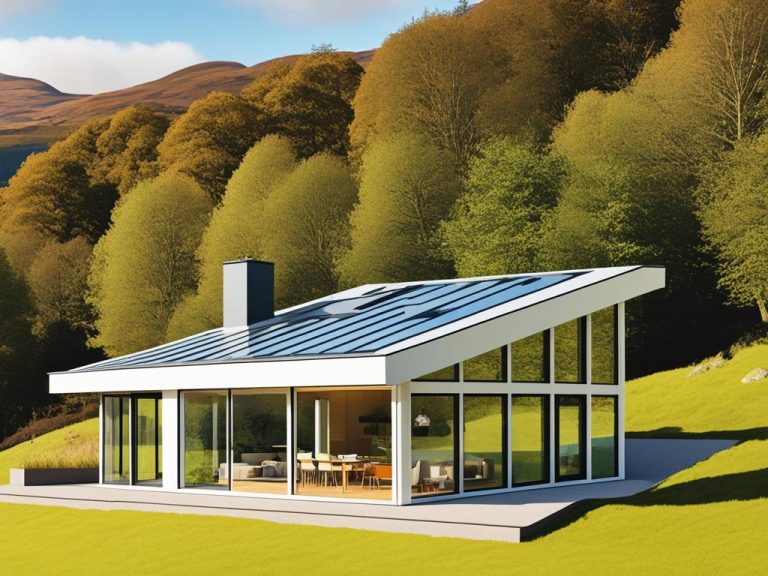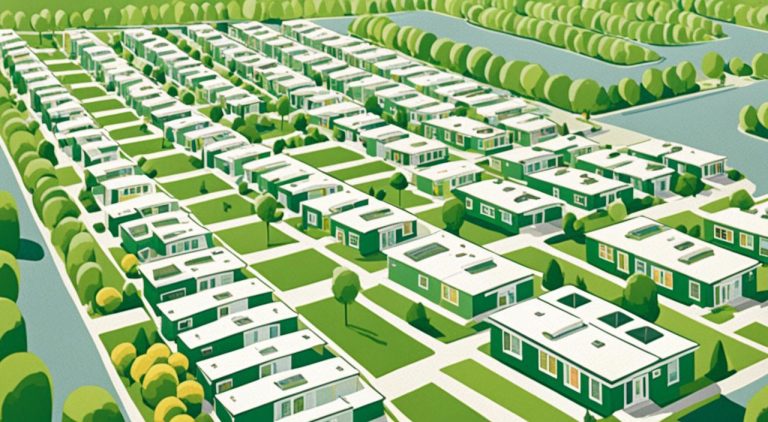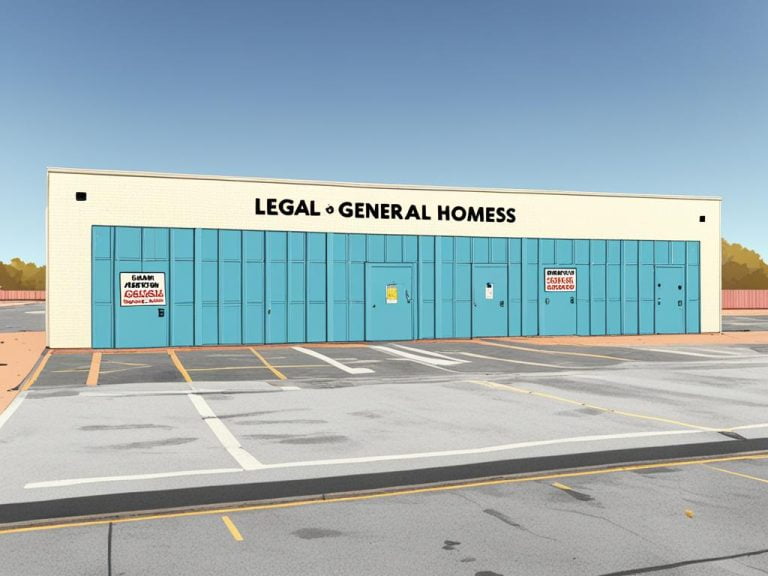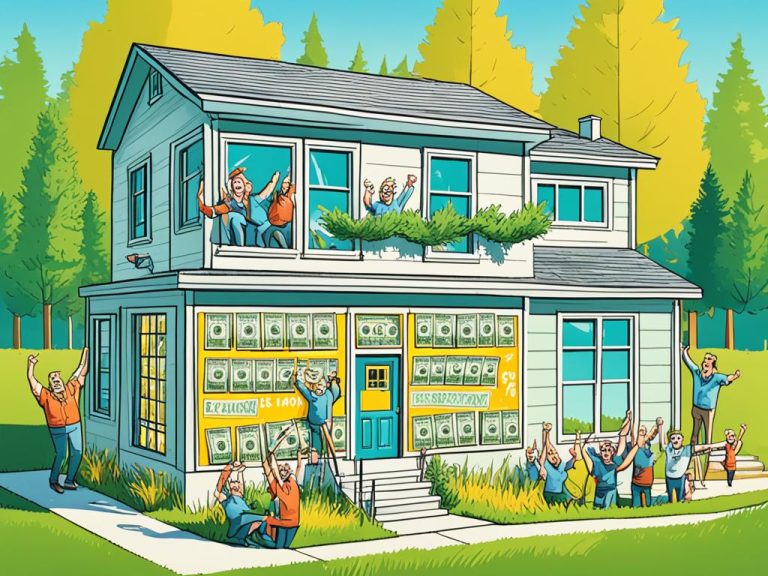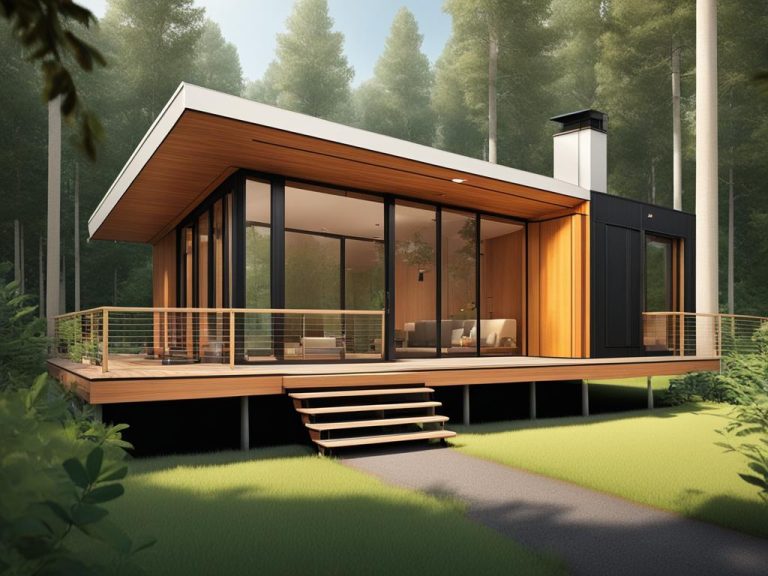Sources of Modular Homes News & Trends

The modular homes market is a rapidly-growing industry that offers a modern solution to the housing crisis. With the demand for affordable and sustainable housing on the rise, modular homes have become an attractive option for many homeowners. In this article, we will explore the latest news and trends in the modular homes industry, providing you with valuable insights into this thriving market.
Key Takeaways:
- The global modular homes market is projected to reach USD 503.52 million by 2028, with a growth rate of 2.68% per year.
- Kwikspace Modular Buildings, Clayton Homes, and Redman Homes are among the leading manufacturers in the modular homes industry.
- Modular homes offer advantages such as energy efficiency, cost-effectiveness, and sustainable construction.
- Challenges in the modular homes industry include supply chain issues and construction delays.
- The future of the modular homes market looks promising, with projections of significant growth and potential contributions to addressing the housing crisis.
Introduction to the Modular Homes Market
The modular homes market is a rapidly-growing industry that offers a modern solution to the housing crisis. Modular homes, also known as prefabricated homes, are constructed offsite in a factory and consist of repeated sections called modules. These modules are then transported to the intended site for installation. The modular homes market is driven by several factors, including increased demand for affordable and sustainable housing, advancements in construction technology, and government support for modular construction.
Market analysis provides valuable insights into the modular homes market, including its size, trends, applications, and various types of modular homes available. This analysis helps stakeholders in the industry make informed decisions and identify market opportunities.
Market Size and Growth: The modular homes market has experienced significant growth in recent years and is expected to continue expanding. According to market trends and analysis, the global modular homes market was valued at £429.62 million in 2022. It is projected to reach a value of £503.52 million by 2028, with a compound annual growth rate (CAGR) of 2.68% during the forecast period.
Applications: Modular homes have a wide range of applications, including residential, commercial, and industrial. They can be customized to meet specific requirements and are suitable for various purposes, such as single-family homes, multi-family complexes, offices, retail spaces, healthcare facilities, and more.
Types of Modular Homes: Modular homes come in different styles and designs to cater to various preferences and needs. These include traditional, contemporary, modern, and eco-friendly modular homes. The flexibility of modular construction allows for endless possibilities in terms of architectural design and interior layout.
Market Opportunities: The modular homes market presents numerous opportunities for industry players. The increasing demand for affordable and sustainable housing offers a significant growth potential. Additionally, advancements in construction technology, such as Building Information Modeling (BIM), 3D printing, and robotic automation, can further revolutionize the modular construction process and open up new avenues for innovation.
With its ability to address housing challenges, provide cost-effective solutions, and support sustainable development, the modular homes market is poised for continued growth and success.

Advantages of Modular Homes
Modular homes offer several benefits that make them an attractive choice for homeowners. Not only do these homes provide a comfortable and stylish living space, but they also offer advantages in terms of energy efficiency, cost-effectiveness, and sustainable construction practices.
Energy Efficiency
One of the key advantages of modular homes is their energy efficiency. These homes are designed and built with energy conservation in mind, incorporating features such as high-quality insulation, double-glazed windows, and energy-efficient appliances. This focus on energy efficiency can result in significant cost savings for homeowners, with potential annual energy bill reductions of up to £800.
Cost-Effectiveness
Modular homes are known for their cost-effectiveness in comparison to traditional construction methods. The controlled construction environment in a factory setting allows for greater efficiency and reduced labor costs. With streamlined processes and shorter construction timeframes, modular homes are built faster, saving both time and money for homeowners. This cost-effectiveness makes modular homes an affordable housing option for individuals and families.
Sustainable Construction
Modular construction promotes sustainable building practices and reduces waste. Just-in-time manufacturing ensures that the materials needed for construction are delivered precisely when they are required. This reduces excess materials and minimizes waste, making modular homes an environmentally friendly option. Additionally, the controlled factory environment allows for better quality control, resulting in fewer construction defects and a longer-lasting, more sustainable home.
Overall, modular homes offer a range of advantages, from energy efficiency to cost-effectiveness and sustainable construction practices. These factors make modular homes an appealing choice for those looking for a modern, eco-friendly, and affordable housing solution.
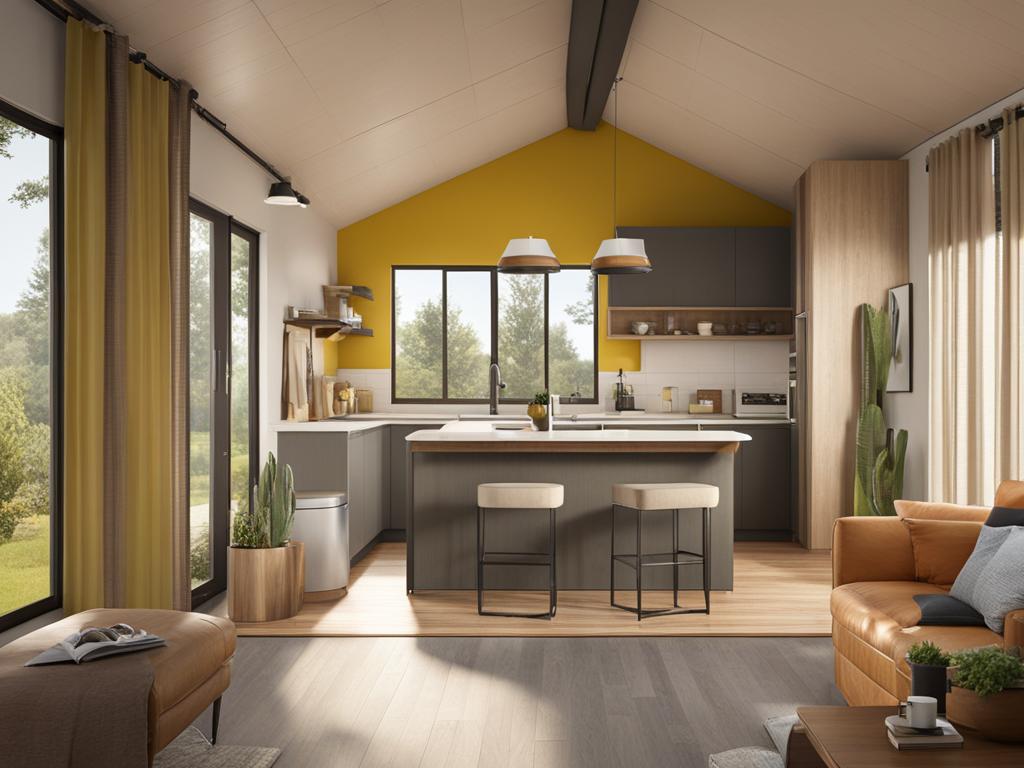
Leading Manufacturers in the Modular Homes Market
The modular homes market is served by several leading manufacturers, including Kwikspace Modular Buildings, Clayton Homes, Redman Homes, Fleetwood Australia, and more. These companies have extensive experience in modular construction and are known for their high-quality homes. They offer a wide range of modular home designs and floor plans to cater to different customer needs.
If you’re looking to purchase a modular home, these leading manufacturers can provide you with exceptional options that combine style, functionality, and sustainability. Kwikspace Modular Buildings, for instance, has been a trusted name in the industry for years, delivering innovative modular solutions to meet the diverse needs of customers. Similarly, Clayton Homes is renowned for its commitment to quality craftsmanship and cutting-edge design. Their modular homes are not only visually appealing but also built to last.
Redman Homes is another leading player in the modular homes market, offering customizable modular home designs and floor plans to suit different preferences and budgets. Their homes are known for their attention to detail and superior construction quality. Fleetwood Australia, on the other hand, specializes in creating modern and energy-efficient modular homes that are perfect for sustainable living.
These leading manufacturers have established themselves as reliable and reputable providers of modular homes. With their expertise and dedication to customer satisfaction, you can trust them to deliver a high-quality, well-designed modular home that meets your specific requirements. Whether you’re in the market for a single-family home, a vacation retreat, or an affordable housing solution, these companies have you covered.

With their commitment to excellence and industry expertise, leading manufacturers in the modular homes market continue to shape the future of housing. By offering innovative designs, sustainable construction practices, and customizable options, they are revolutionizing the way we build and live in homes. So, if you’re considering a modular home, explore the offerings from these trusted companies and find the perfect modular home for your needs.
Challenges in the Modular Homes Industry
Despite its immense potential, the modular homes industry faces several challenges that can impact the construction process and overall customer satisfaction. One of the significant challenges is the occurrence of supply chain problems. These problems often lead to delays in the delivery of essential materials and components, resulting in project setbacks.
For instance, delayed delivery of roof trusses and tiles can leave the modules exposed to the elements, leading to dampness and potential damage. Such issues not only hinder the construction timeline but also pose risks to the structural integrity of the modular homes.
In addition to supply chain problems, some modular home projects have also encountered issues with foundations. These issues can arise due to various factors, including inadequate site preparation, land stability, or miscalculations during the construction phase. Consequently, these foundation issues can lead to delays in project completion and customer dissatisfaction.
Despite these challenges, industry leaders are actively working to address them and enhance the modular construction process. By focusing on improving supply chain management, streamlining delivery logistics, and implementing better quality control measures, the industry is striving to overcome these obstacles and deliver high-quality modular homes to customers.

Future of the Modular Homes Market
The modular homes market is poised for significant growth in the coming years. With the increasing demand for affordable and sustainable housing solutions, industry experts predict that modular homes will become a fundamental part of how homes are delivered in the UK in the future.
Market projections reveal a promising outlook for the modular homes market. It is estimated that the industry will be able to build 20,000 modular homes by 2025, making a substantial contribution towards the government’s target of 300,000 new homes per year.
To further support this growth, the industry is exploring new opportunities, such as affordable housing initiatives and infrastructure projects. These efforts will not only fuel market expansion but also address the pressing housing needs in the UK.

Conclusion
The modular homes market is an industry on the rise, offering innovative housing solutions for a variety of needs. With their energy efficiency, cost-effectiveness, and sustainable construction practices, modular homes are gaining popularity among homeowners and developers alike.
Leading manufacturers in the modular homes market are continually improving their construction processes to meet the growing demand. They are addressing challenges such as supply chain issues and foundation concerns, ensuring that customers receive high-quality homes in a timely manner.
The future of the modular homes industry looks promising, with projections of significant growth and the potential to contribute towards addressing the housing crisis in the UK. These homes provide a modern and efficient approach to housing, aligning with the need for affordable and sustainable living spaces.
FAQ
What are modular homes?
Modular homes are prefabricated buildings or houses that consist of repeated sections called modules. These modules are constructed offsite in a factory and then transported to the intended site for installation.
What are the advantages of modular homes?
Modular homes offer several advantages including energy efficiency, cost-effectiveness, and sustainable construction practices. They can save homeowners up to £800 a year on energy bills and are constructed in a controlled environment, resulting in better quality and fewer construction defects.
Who are the leading manufacturers in the modular homes market?
Leading manufacturers in the modular homes market include Kwikspace Modular Buildings, Clayton Homes, Redman Homes, and Fleetwood Australia, among others.
What challenges does the modular homes industry face?
The modular homes industry faces challenges such as supply chain problems, which can lead to delays in the construction process. Some projects have also faced issues with foundations, resulting in delays and customer dissatisfaction.
What is the future of the modular homes market?
The modular homes market is expected to grow significantly in the coming years. Industry experts predict that the industry will be a significant part of how homes are delivered in the UK in the future. Market projections indicate that the industry will be able to build 20,000 modular homes by 2025, which would contribute to meeting the government’s target of 300,000 new homes per year.
Source Links
- https://www.theguardian.com/business/2023/apr/14/fast-build-modular-homes-an-answer-to-the-uk-housing-crisis
- https://www.linkedin.com/pulse/europe-modular-houses-market-research-report-zkdof?trk=article-ssr-frontend-pulse_more-articles_related-content-card
- https://www.linkedin.com/pulse/modular-homes-market-updates-2023-2030-exploring-potential/

